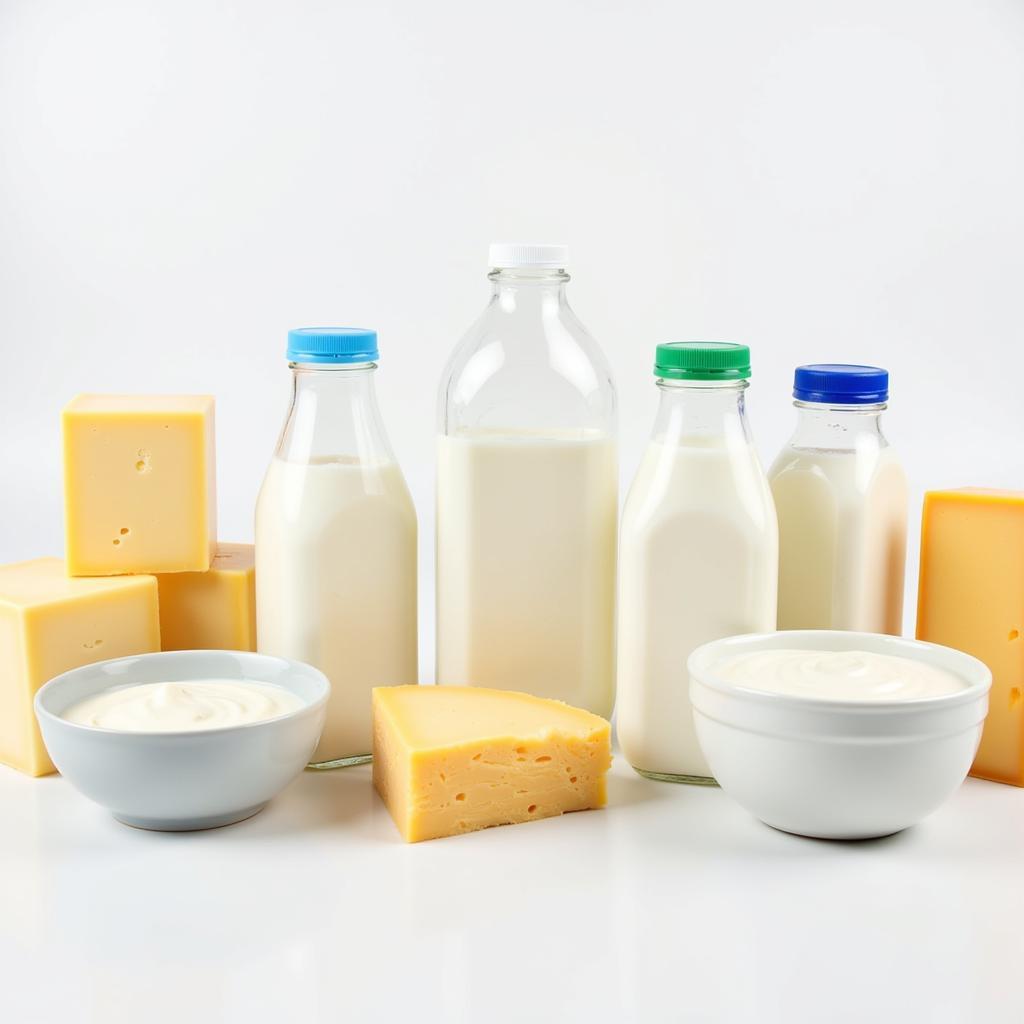Food safety is paramount, and understanding the 12 Tcs Foods is crucial for preventing foodborne illnesses. These foods require Time and Temperature Control for Safety (TCS) because they provide an ideal environment for harmful bacteria to thrive. Let’s dive into what these 12 TCS foods are and why they require special handling.
What are the 12 TCS Foods?
The 12 TCS foods, as defined by the FDA, are those that require strict temperature control to prevent the growth of harmful bacteria. These foods are typically high in protein and moisture, creating a perfect breeding ground for pathogens. Proper handling, storage, and cooking of these foods are essential to minimize the risk of foodborne illnesses.
Milk and Dairy Products
Milk and dairy products, including cheese, yogurt, and cream, are highly susceptible to bacterial contamination. These products should always be refrigerated and kept at safe temperatures.
 Milk and Dairy Products Require Time and Temperature Control
Milk and Dairy Products Require Time and Temperature Control
Eggs
Eggs, in their raw or undercooked form, can harbor Salmonella, a bacteria that causes food poisoning. Proper cooking and handling are essential to eliminate this risk.
Meat (Beef, Pork, Lamb)
Raw and undercooked meat can contain various harmful bacteria, making it crucial to cook them to the appropriate internal temperature.
Poultry (Chicken, Turkey, Duck)
Similar to meat, poultry is prone to bacterial contamination and requires thorough cooking to ensure safety.
Fish
Certain types of fish, especially larger ones, can contain toxins and parasites. Proper cooking and storage are vital for safe consumption.
Shellfish (Oysters, Clams, Mussels)
Shellfish are filter feeders and can accumulate bacteria and viruses from the water they inhabit. Thorough cooking is essential for safe consumption.
Baked Potatoes
Baked potatoes, especially those wrapped in foil, create a moist, warm environment ideal for bacterial growth if not handled properly.
Heat-Treated Plant Food (Rice, Beans, Vegetables)
Cooked rice, beans, and other plant foods can harbor bacteria if left at room temperature for extended periods.
Soy Products (Tofu, Tempeh)
Tofu and tempeh, due to their high protein content, require proper refrigeration and handling to prevent bacterial growth.
Sprouts (Alfalfa, Bean, Clover)
Sprouts are grown in warm, humid conditions that also favor the growth of bacteria. Thorough washing and proper storage are essential.
Sliced Melons
Cut melons are susceptible to bacterial contamination due to their high water content and the potential for cross-contamination from cutting utensils.
Garlic-in-Oil Mixtures
Garlic-in-oil mixtures are a TCS food because the low-acid environment of the oil allows for the growth of Clostridium botulinum, a bacteria that produces a potent neurotoxin.
Why is it Important to Know the 12 TCS Foods?
Knowing the 12 TCS foods is essential for anyone involved in food preparation, from professional chefs to home cooks. Understanding these foods empowers us to take the necessary precautions to prevent foodborne illnesses and ensure food safety.
“Understanding the characteristics of TCS foods is the first line of defense against foodborne illnesses,” says renowned food safety expert, Dr. Amelia Carter, PhD in Food Science and Technology from the University of California, Davis.
Conclusion
By understanding and properly handling the 12 TCS foods, we can significantly reduce the risk of foodborne illnesses and enjoy our meals safely. Remember to control time and temperature when handling these foods to ensure your health and well-being.
FAQ
-
What does TCS stand for?
TCS stands for Time and Temperature Control for Safety. -
Why are these foods called TCS foods?
These foods are called TCS foods because they are prone to bacterial growth if not kept at the correct temperatures for specific time periods. -
What are some common symptoms of foodborne illness?
Common symptoms include nausea, vomiting, diarrhea, and abdominal cramps. -
How can I prevent foodborne illness from TCS foods?
Proper cooking, cooling, storing, and reheating are essential to prevent foodborne illness. -
What is the temperature danger zone?
The temperature danger zone is between 41°F and 135°F (5°C and 57°C), where bacteria thrive. -
Where can I find more information about food safety?
The FDA website is a great resource for detailed information about food safety practices. -
Are all cooked foods considered TCS foods?
No, not all cooked foods are TCS foods. The 12 TCS foods are specifically identified due to their high risk of bacterial growth.
Other Helpful Resources on Mina Cones Food:
- Food Safety Tips for Beginners
- Understanding Foodborne Illnesses
- Cooking Temperatures for Different Foods
Need help? Contact us at 02437655121, email us at minacones@gmail.com, or visit us at 3PGH+8R9, ĐT70A, thôn Trung, Bắc Từ Liêm, Hà Nội, Việt Nam. Our customer service team is available 24/7.